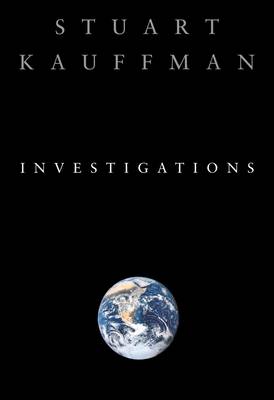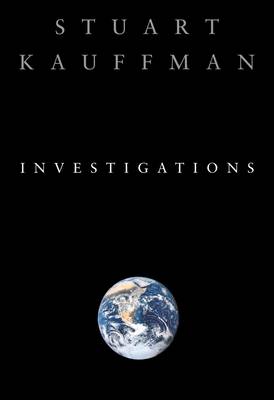
- Retrait gratuit dans votre magasin Club
- 7.000.000 titres dans notre catalogue
- Payer en toute sécurité
- Toujours un magasin près de chez vous
- Retrait gratuit dans votre magasin Club
- 7.000.0000 titres dans notre catalogue
- Payer en toute sécurité
- Toujours un magasin près de chez vous
Description
In the tradition of Schrödinger's classic What Is Life?, this book is a tour-de-force investigation of the basis of life itself, with conclusions that radically undermine the scientific approaches on which modern science rests-the approaches of Newton, Boltzman, Bohr, and Einstein.
Kauffman's At Home in the Universe, which The New York Times Book Review called "passionately written" and nature named "courageous," introduced pivotal ideas about order and evolution in complex life systems. In investigations, Kauffman builds on these theories and finds that classical science does not take into account that physical systems--such as people in a biosphere--effect their dynamic environments in addition to being affected by them. These systems act on their own behalf as autonomous agents, but what defines them as such? In other words, what is life? By defining and explaining autonomous agents and work in the contexts of thermodynamics and of information theory, Kauffman supplies a novel answer to this age-old question that goes beyond traditional scientific thinking.
Much of Investigations unpacks the progressively surprising implications of his definition. Kauffman lays out a foundation for a new concept of organization, and explores the requirements for the emergence of a general biology that will transcend terrestrial biology to seek laws governing biospheres anywhere in the cosmos. Moreover, he presents four candidate laws to explain how autonomous agents co-create their biosphere and the startling idea of a "co-creating" cosmos.
A showcase of Kauffman's most fundamental and significant ideas, Investigations presents a new way of thinking about the basics of general biology that will change the way we understand life itself--on this planet and anywhere else in the cosmos.
Kauffman's At Home in the Universe, which The New York Times Book Review called "passionately written" and nature named "courageous," introduced pivotal ideas about order and evolution in complex life systems. In investigations, Kauffman builds on these theories and finds that classical science does not take into account that physical systems--such as people in a biosphere--effect their dynamic environments in addition to being affected by them. These systems act on their own behalf as autonomous agents, but what defines them as such? In other words, what is life? By defining and explaining autonomous agents and work in the contexts of thermodynamics and of information theory, Kauffman supplies a novel answer to this age-old question that goes beyond traditional scientific thinking.
Much of Investigations unpacks the progressively surprising implications of his definition. Kauffman lays out a foundation for a new concept of organization, and explores the requirements for the emergence of a general biology that will transcend terrestrial biology to seek laws governing biospheres anywhere in the cosmos. Moreover, he presents four candidate laws to explain how autonomous agents co-create their biosphere and the startling idea of a "co-creating" cosmos.
A showcase of Kauffman's most fundamental and significant ideas, Investigations presents a new way of thinking about the basics of general biology that will change the way we understand life itself--on this planet and anywhere else in the cosmos.
Spécifications
Parties prenantes
- Auteur(s) :
- Editeur:
Contenu
- Nombre de pages :
- 308
- Langue:
- Anglais
- Collection :
Caractéristiques
- EAN:
- 9780195121056
- Date de parution :
- 19-09-02
- Format:
- Livre broché
- Format numérique:
- Trade paperback (VS)
- Dimensions :
- 153 mm x 227 mm
- Poids :
- 408 g

Les avis
Nous publions uniquement les avis qui respectent les conditions requises. Consultez nos conditions pour les avis.






